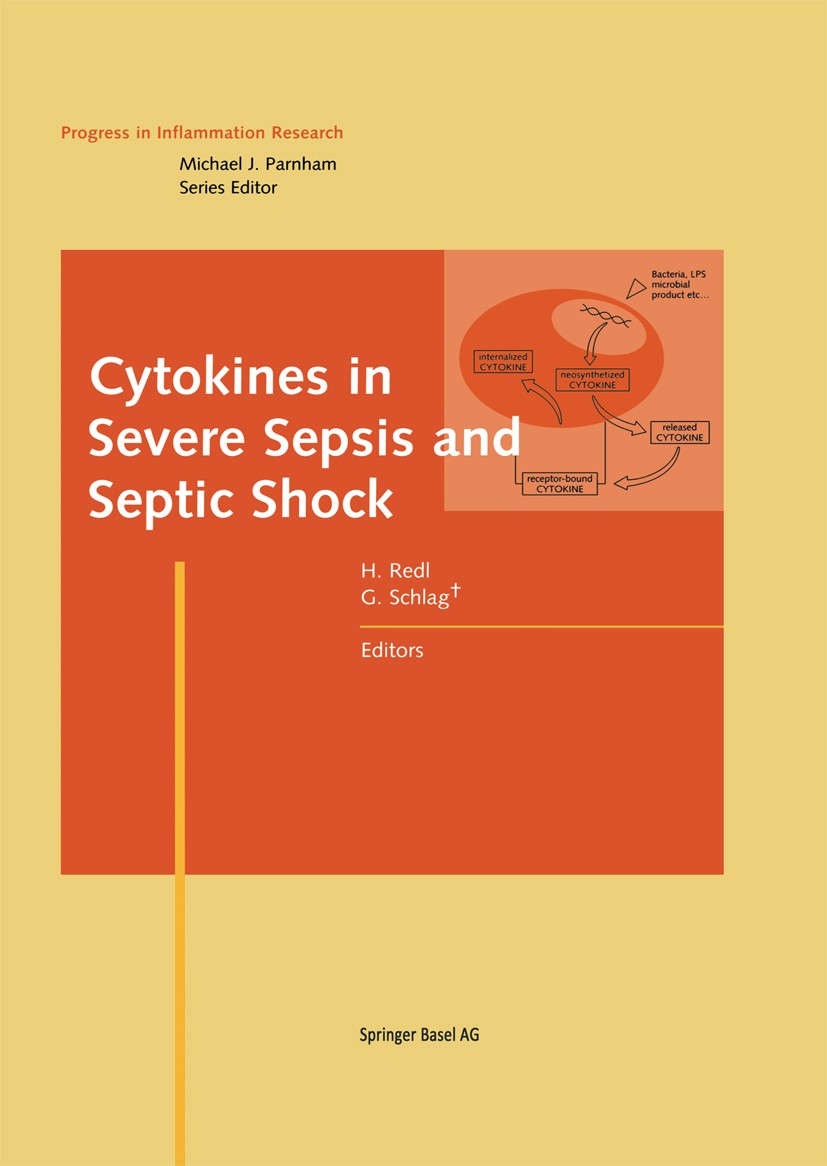| 書目名稱 | Cytokines in Severe Sepsis and Septic Shock |
| 編輯 | Heinz Redl,Günther Schlag |
| 視頻video | http://file.papertrans.cn/243/242649/242649.mp4 |
| 叢書名稱 | Progress in Inflammation Research |
| 圖書封面 |  |
| 描述 | t Heinz Red! and Gunther Sch!ag Ludwig Boltzmann Institute for Experimental and Clinical Traumatology, Vienna, Austria The word "sepsis" derives from the Greek meaning decay or rottenness. Tradition- ally this term has been used to describe the process of infection accompanied by the host‘s systemic inflammatory response. Based on that understanding, previous clin- ical studies have been designed to include only patients with positive blood cultures [1, 2]. However, the frequent occurrence of a septic response without the demon- stration of microorganisms in the circulation has led to a new definition and under- standing of sepsis, mainly as the systemic response of the host to an often unde- tectable microbiological or non-microbiological process [3]. The general consensus is that cytokines are central to the inflammatory response, particularly in sepsis. It is now known that not only Gram-negative but also Gram- positive, viral, and fungal infections initiate the complex cascades of cytokine release. Probably the most important aspect of bacterial action is the release of toxic bacterial products. In particular endotoxin from Gram-negative bacteria (see chap- ter by Schade) and s |
| 出版日期 | Book 1999 |
| 關(guān)鍵詞 | Sepsis; clinical trial; cytokine; gene therapy; genetics; immunomodulation; inflammation; intensive care; me |
| 版次 | 1 |
| doi | https://doi.org/10.1007/978-3-0348-8755-7 |
| isbn_softcover | 978-3-0348-9759-4 |
| isbn_ebook | 978-3-0348-8755-7Series ISSN 1422-7746 Series E-ISSN 2296-4525 |
| issn_series | 1422-7746 |
| copyright | Springer Basel AG 1999 |
 |Archiver|手機(jī)版|小黑屋|
派博傳思國際
( 京公網(wǎng)安備110108008328)
GMT+8, 2025-10-7 14:25
|Archiver|手機(jī)版|小黑屋|
派博傳思國際
( 京公網(wǎng)安備110108008328)
GMT+8, 2025-10-7 14:25


